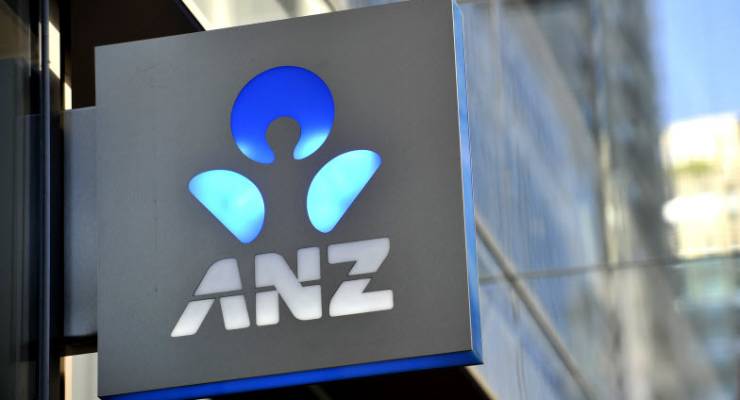
ANZ today began what could be the biggest change in superannuation in Australia in decades: it wants to get out of wealth management.
ANZ boss Shayne Elliott confirmed the possible sale of the bank’s life insurance, advice and superannuation and investments businesses in Australia in the bank’s results today, saying that a “strategic review of ANZ’s Wealth businesses in Australia and New Zealand concluded that while the distribution of high quality Wealth products and services should remain a core component of the Group’s overall customer proposition, ANZ does not need to be a manufacturer of Life and Investments products”. As a result, “the initial focus will be on the Australian Wealth business where ANZ is exploring a range of possible strategic and capital market options that will maintain strong outcomes for customers. This includes the possible sale of the life insurance, advice and superannuation and investments businesses in Australia.”
ANZ, it seems, wants to go back to the quiet life of just being a bank.
While the ostensible reason is the lower returns from wealth management (ANZ’s cash profit for the year from its Australian wealth division was down 24% to $327 million), it’s clear what’s at least in part driven the decision: the rising tide of financial scandals at all the banks involving poor advice, conflicted remuneration, mismanagement of customer accounts, rapacious fees and charges and, especially in their life insurance arms, outright rip-offs. The constant focus on bank misconduct and in superannuation, the significantly poorer performance of bank-owned retail products, has finally proved too much, especially given the banks were having to spend plenty of capital — of both the political kind and the real kind — to keep their main political protectors, the Liberal Party, onside in Canberra.
ANZ’s move will pressure the Commonwealth Bank to address growing pressure from shareholders and others to sell its huge wealth management business, and Westpac will face questions as to what it plans to do when it reveals its full-year figures on Monday. The National Australian Bank has already sold sold 80% of its life insurance business.
The announcement is also a tribute to the aggressive investigate journalism of Fairfax’s Adele Ferguson (who has also worked with the ABC’s Four Corners on the subject). She has led the reporting of financial scandals at banks such the Commonwealth and done much to ensure politicians and regulators couldn’t hide from the truth of big bank misbehaviour.
Just how far the sale process goes will depend on interest from others and the price ANZ wants. ANZ could end up keeping some parts of the business because there are no buyers ready to pay the prices the bank wants (it is already selling wealth management assets in Asia at massive losses — $265 million in the latest year). It is likely that global fund management giants such as Blackrock of the US will be at the forefront of buyers. ANZ is saying that it will still offer wealth products, but created and managed by someone else, who will carry the responsibility for the processing, payments, quality of the advice and regulator responsibilities for the stuff being sold.
Make no mistake, this may lead to a fundamental shake-up of wealth management and superannuation. ANZ has admitted defeat on the long-running attempt by the big banks to cash in on compulsory super and to force customers to consume multiple unnecessary or overhyped products. It could be that its peers reject the ANZ’s approach and continue with their wealth management arms, but the ANZ’s move is unlikely to be the last by an Australian bank. And it will splinter the hitherto powerful retail super sector, which has had the Liberal Party at its beck and call for over a decade to help it fight the far more successful industry super sector, which offers better performance and lower fees. In the future, there may well be the remnants of the bank-controlled retail super sector, and an independent retail super sector, perhaps foreign controlled, possibly less interested in getting in on the local cartel giggle of charging customers higher fees for poorer performance on their super.
The result also undermines the image of the big banks as remorseless profit machines: ANZ’s cash profit fell 18% to $5.9 billion, and it also slashed its final dividend to 80 cents a share from 95 cents a year ago, a chop of more than 15%. Total dividend for the year is $1.60 a share, down from $1.95, and the bank says its dividend payout ratio is heading back to the 60-65% (the payout ratio for 2015-16 was nearly 80%, or 67% on an adjusted basis). That means financial pain for hundreds of thousands of small investors, both individual and in self-managed super funds, who have built their investment strategies on the full franked dividend flow from ANZ.
ANZ in a couple of years’ time could look very different to the entity ruled over by Mike Smith until December last year. The bank has now repudiated Smith’s failed Asian expansion strategy — who can forget the bank’s then-chairman boasting years ago that ANZ was a “growth” stock rather than a “yield” stock because of its Asian investments? Its retreat from wealth products means it will instead look much more like a traditional bank — the kind that borrows from some customers and lends to other customers and doesn’t see them as cows to be milked dry of cash.








Crikey is committed to hosting lively discussions. Help us keep the conversation useful, interesting and welcoming. We aim to publish comments quickly in the interest of promoting robust conversation, but we’re a small team and we deploy filters to protect against legal risk. Occasionally your comment may be held up while we review, but we’re working as fast as we can to keep the conversation rolling.
The Crikey comment section is members-only content. Please subscribe to leave a comment.
The Crikey comment section is members-only content. Please login to leave a comment.